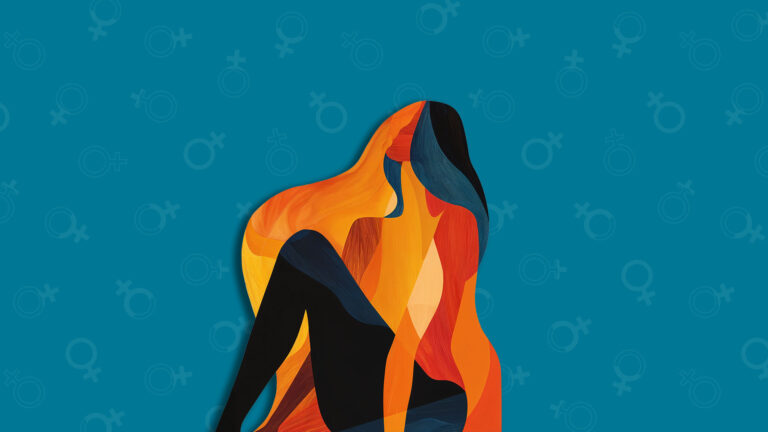If Rogaine, hair plugs and pricey salon visits tell us anything, it’s that people are very attached to the hair on their heads. Lush, healthy locks are a hallmark of youth, after all, and it’s hard to come to terms with thinning strands. For that matter, sparser lashes and brows can be just as rattling—a visible reminder of the aging process for all to see. For some people, supplementing with NMN, or nicotinamide mononucleotide, is all about its potential to promote new hair growth and stop thinning in its tracks. But does this NAD precursor really support hair growth? Here’s what the science tells us, and why key ingredients in Wonderfeel’s proprietary NMN formulation work wonders if you’re after stronger, healthier hair.
How does NMN affect hair health?
First things first. To understand how NMN supports hair health, we have to clarify the role nicotinamide adenine dinucleotide, or NAD, plays in the body. We’ve described NAD as an essential key to cellular health—it’s as critical as it is abundant in the human body, but the older we get, the lower our NAD levels become. That decline is associated with a depressing list of age-related diseases and conditions, including but not limited to metabolic disorders, heart disease, neurodegeneration and plain old aging. And yep, that includes thinning hair and flat-out balding, thanks to diminished hair follicle activity. It’s not limited to the hair on your head, either. Sparser lashes and brows are also par for the course.
Hair loss, while largely related to the relentless march of time, can also be related to any number of things. For men and women alike, there are specific triggers behind different types of hair loss:
- Genetics, as is the case with androgenic alopecia
- Nutritional deficiencies
- Circulatory issues to the scalp’s blood supply
- Hair growth disorders
- Poor diet
- Hormonal imbalances
- Certain diseases, including kidney failure, liver damage and autoimmune conditions
- Drug use
- Stress and depression, which can trigger telogen effluvium
- Cosmetic factors
- Childbirth
- Chemotherapy, also the culprit behind telogen effluvium
We’ll take a minute here to address the genetic component contributing to hair loss, particularly male pattern baldness. In one study, researchers analyzed data from more than 52,000 male participants and identified 287 independent genetic signals associated with the condition. Other literature suggests that up to 80% of androgenetic alopecia cases can be blamed on genetics. Still, it appears that there’s a lot that can be done to slow down those genes—which brings us to NMN.

The beauty of NMN is that as an NAD precursor, it can help restore NAD to more youthful levels, supporting cellular function and combating oxidative stress. The latter is particularly relevant for hair—oxidative stress can contribute to hair loss by damaging hair follicles and hindering healthy hair growth. NAD also has an impressive ability to regulate cell regeneration. In hair follicles especially, promoting efficient cell renewal can help encourage healthy hair growth and support a stable scalp environment. There’s also quite a bit of anecdotal evidence that NMN supplementation thickens eyelashes and eyebrows nicely—we regularly hear from pleased customers reporting this happy benefit after six or eight months of use. Still, to be clear, whether or not NMN can help with hair loss comes down to the specific cause. Unfortunately, when something like disease is causing hair loss, a great supplement is unlikely to be very helpful.
Can NMN reverse hair loss?
Current treatments for hair loss, like minoxidil and finasteride, promote hair growth in certain cases, but results are often saddled with pretty terrible side effects, like erectile dysfunction and the very serious risk of fetal abnormalities. It’s a pretty sad state of affairs, and there has been an increasing clamor for less unpleasant solutions.
Enter NMN. Results from a 2024 study on mice found that NMN can indeed “reverse the state of hair follicle atrophy, hair thinning, and hair sparsity,” which suggests that NMN could be an effective (not to mention safe—no ED risk here) treatment for hair loss. The magic is in NMN’s mechanism of action—its ability to significantly reduce inflammatory factors, increase hair follicle growth factor activity and suppress follicle growth blockers that can inhibit healthy hair growth.
Can NMN make hair thicker?
Blame Mom and Dad for this one—the thickness of individual hair follicles is entirely genetic and can’t be changed. Not even NMN can make individual hair strands thicker. It can, however, improve scalp and hair health, which can contribute to a fuller head of hair. And that’s no small thing! Reducing inflammation—truly, a hallmark of NMN—means a healthier scalp environment and thriving hair follicles.
What’s more, NMN can enhance blood flow to the scalp. Hair follicles need nutrients and oxygen, and amped up circulation does exactly that. NMN’s positive influence on mitochondrial function could also be a bonus for hair loss. As the powerhouse of the cell, mitochondrial dysfunction is associated with all kinds of age-related woes, including thinner, wispier hair.
Is NMN beneficial for healthy hair?
If you’re fortunate enough to have great hair already, well, keep a good thing going! Animal models and cell cultures suggest that NMN could have a positive effect on keratin production, a protein that keeps hair strong and elastic. Stronger, more elastic hair is less prone to breakage and just looks better. Plus, NMN’s inherent antioxidant properties can help shield scalp cells from environmental stressors, keeping the scalp microbiome flourishing and the hair strong and resilient.
Other compounds that promote hair growth
NMN isn’t alone in its ability to support hair growth. Ergothioneine and resveratrol—two ingredients found in the proprietary blend that is Wonderfeel Youngr™, a supercharged NMN supplement—bring their own benefits to the party. Ergothioneine, AKA ergo, is a potent antioxidant found abundantly in mushrooms. As you may have guessed, that makes it a strong defender against oxidative stress and inflammation, both of which contribute to hair loss and thinning. It also shields against biomolecular damage and helps maintain cellular health, two attributes that contribute to hair vitality.
Resveratrol, meanwhile, is a polyphenol that acts as a direct antioxidant and an indirect cellular antioxidant system inducer. In other words, it’s protecting cells against oxidative stress in more ways than one. It’s also been shown to promote hair growth by activating a key pathway that manages hair follicle development and growth. Essentially, it increases the expression to promote the growth phase and delays the transition to the shedding phase—exactly what you want when you’re worried about thinning locks.
What’s even cooler is that both of these compounds, along with hydroxytyrosol and vitamin D3, can be found in Wonderfeel Youngr™. If you’re considering an NMN supplement specifically for its hair-promoting benefits, you’d be hard pressed to find a better option. Our formula includes these handpicked antioxidants to ensure both NMN and NAD can work effectively in the cell and to do that, they need to be shielded from oxidative stress. That’s where the antioxidants in Youngr™ come in. It’s a tidy solution, if we do say so ourselves!

The takeaway
Increasingly, trichologists and dermatologists are paying close attention to the potential role NMN might play for hair and skin, especially as it relates to aging—and for good reason. While more research, particularly human studies, is warranted to clarify exactly how NMN can promote hair growth, what we already know is terribly exciting. That’s especially true when you consider the current treatment options on offer for hair loss. Promoting lusher, denser, healthier hair and combating hallmarks of aging? That’s what we call a win-win.












